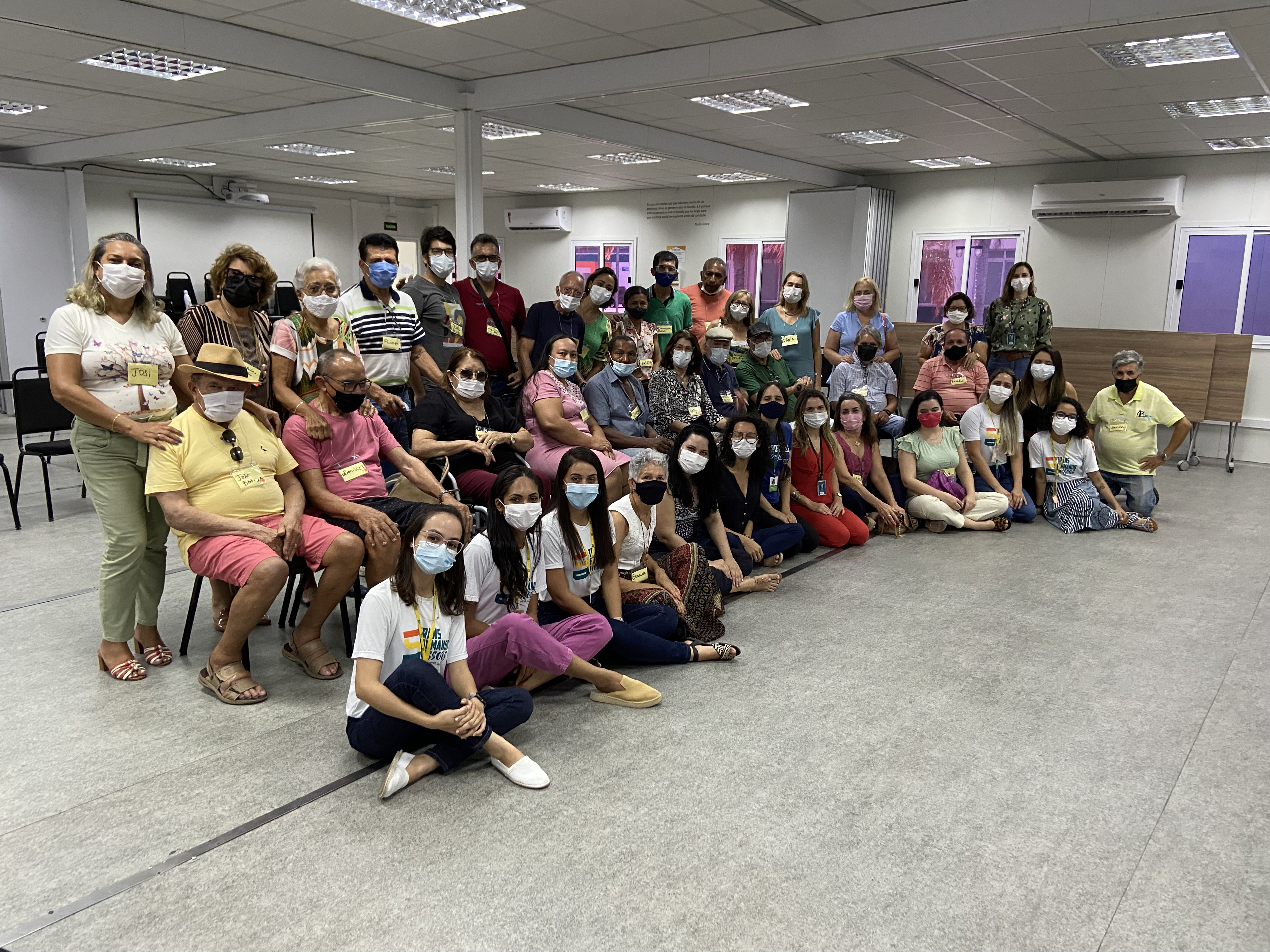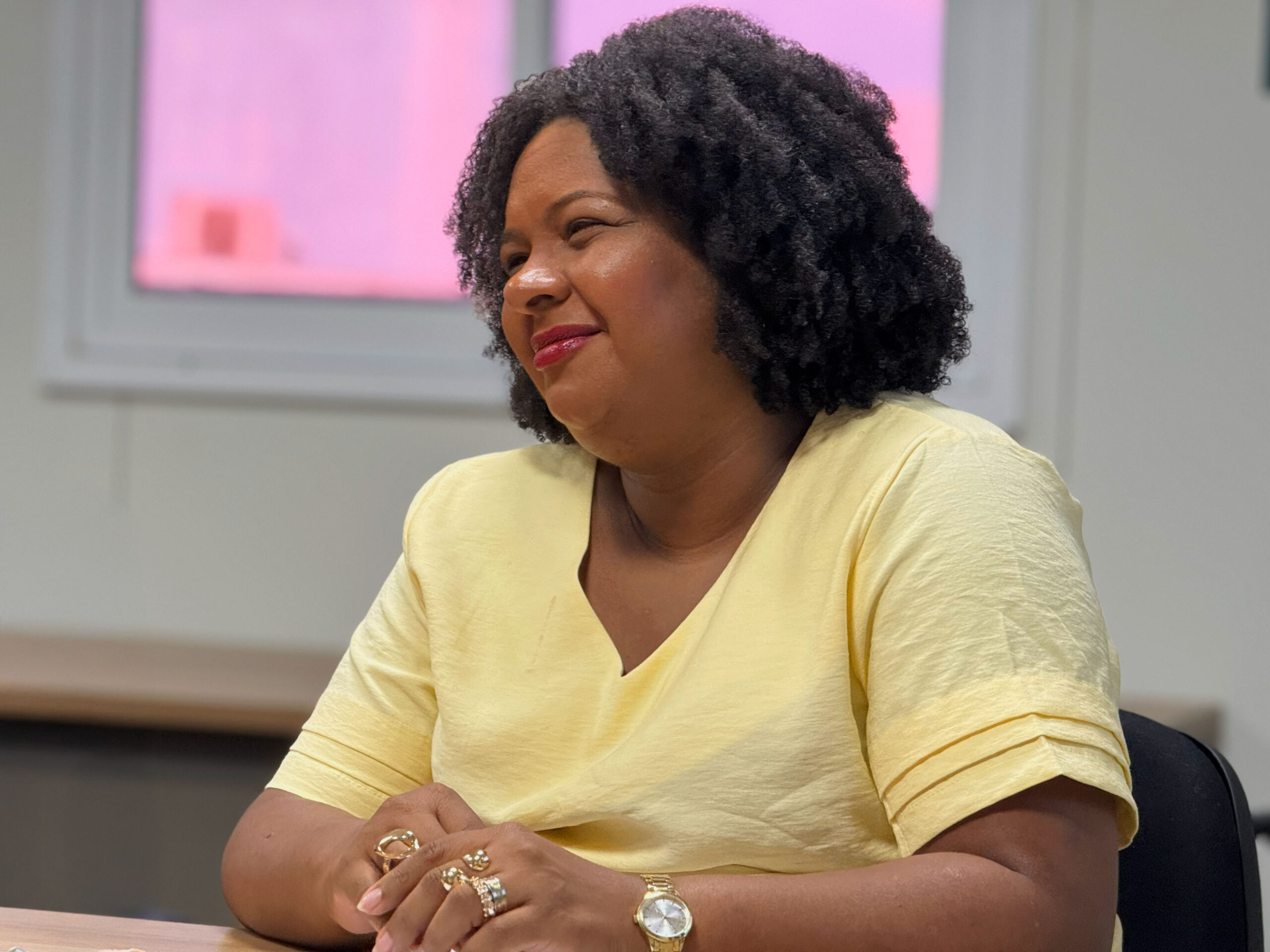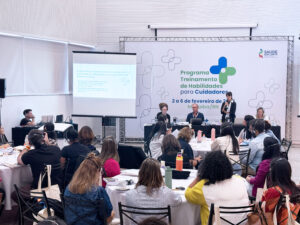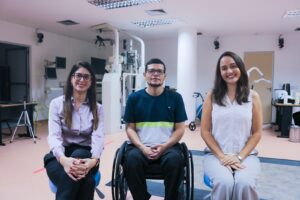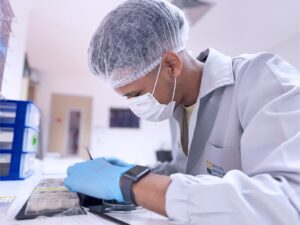After a period of suspension of in-person activities due to the most critical phase of the coronavirus pandemic, Educa Parkinson's in-person actions were resumed this Monday (13/12) by the Santos Dumont Institute (ISD). Approximately 40 patients and family members treated at the Parkinson's Clinic at the Anita Garibaldi Health Education and Research Center (Anita), one of the ISD units in Macaíba, participated in a dialogued lecture whose theme was “Nutritional Guidelines for Parkinson's”.
Nutritional care is important in Parkinson's because through adequate nutrition, the person with the condition will be able to prevent complications resulting from the disease, have more energy and a more effective action of the medication. According to ISD's multidisciplinary nutritionist preceptor, Luciana Câmara, there is still misinformation among Parkinson's patients about the correct diet and the lecture aimed to reduce it. The consumption of a varied diet, rich in antioxidant nutrients, should be encouraged. However, you need to be careful with supplements.
One of the most used medications in the treatment of Parkinson's disease is levodopa, which interacts with dietary proteins and vitamin B6 supplementation. Nutritionist Luciana Câmara advises that protein consumption be avoided at times close to medication (2 hours before or 2 hours after).
“We talk about a diet that can generate more energy, that can improve constipation, that is anti-inflammatory, that causes less choking, combined with regular water consumption. The most important thing about nutrition in Parkinson's is the relationship between protein and medication, so that protein does not interfere with the absorption of the medication. The information we gave was so that they can have autonomy in their diet and improve the quality of their diet on a daily basis”, highlights nutritionist Luciana Câmara.
Parkinson's is a chronic and progressive degenerative disease of the central nervous system. It is caused by the intense decrease in the production of dopamine, which is a neurotransmitter (chemical substance that helps in the transmission of messages between nerve cells). Dopamine helps in carrying out voluntary movements of the body, automatically, that is, we do not need to think about each movement that our muscles perform, thanks to the presence of this substance in the brain. In the absence of it, the individual's motor control is lost, causing characteristic signs and symptoms.
One of the Parkinson's Clinic patients who participated in the activity was João Oliveira, 61 years old. He was diagnosed with the disease in 2016 and has been under follow-up at ISD for approximately seven months. Drug treatment combined with physiotherapy specific to his needs has generated good results. “I feel better, more confident. The assistance provided by Anita's physiotherapists helped me a lot with the exercises that were given, especially in terms of communication. Today, I choke less, I can speak better. With physiotherapy, my (muscle) stiffness decreased and I gained a better quality of life”, commented João Oliveira, who for the first time participated in the group's in-person activity, being welcomed by the oldest patients.
According to multidisciplinary neuropsychologist preceptor Joísa Araújo, during the most acute phase of the pandemic, when non-essential activities were suspended, some editions of Educa Parkinson were carried out remotely. “It was what was possible for the moment. We knew they missed each other, as they treat each other like family, taking care of each other. It was a moment of sharing knowledge and also of reunions. They were super excited and kept asking the nutritionist questions”, commented Joísa Araújo.
The return to face-to-face activities was celebrated by patients at the Parkinson's Clinic. One of the most excited was retired Domingos Sávio de Azevedo Cabral, 71 years old. Diagnosed with Parkinson's at age 58, he is one of the clinic's first patients. Combining drug treatment with physiotherapy and other procedures developed at Anita, he detailed gains in quality of life and autonomy. “I call this heaven. I never came here not to learn something about Parkinson's. I always learn something. Due to my illness, I read a lot. I improved a lot through therapy and physiotherapy here at Anita”, he commented.
The multidisciplinary physiotherapist preceptor and coordinator of the Residency Program in Health Care for People with Disabilities, Lorenna Santiago, highlighted the importance of resuming in-person meetings and announced the creation of a committee to discuss issues related to the ISD Parkinson's Clinic. “The resumption of face-to-face activities by the group of patients and families at the ISD Parkinson's Clinic, known as the Tremeluzir group, is part of the treatment of the disease. The process of learning to deal with Parkinson's to have a better quality of life goes far beyond physical and cognitive exercises and the use of medications. Appropriating specific information and exchanging experiences with other people who are experiencing similar situations is fundamental to strengthening autonomy and the support network”, he highlighted.
Team
The Parkinson's Clinic includes ISD's multidisciplinary preceptors, neuropsychologist Joísa Araújo; physiotherapist Lorenna Santiago; psychologist Miliana Galvão; speech therapist Marília Brito; social worker Alexandra Lima and occupational therapist Thays Brígido. As a medical preceptor, neurosurgeon Hougelle Simplício is part of the group. Nutritionist Luciana Câmara was invited to participate in the meeting based on the demands brought by patients. This Monday's activities had the support of the residents of the Multiprofessional Residency Program in Health Care for People with Disabilities, Érica Juliana Bezerra, Rafaelly Alves, Sara Lima, Leislei Maquiri, Lídia Gomes, Mirelly Danglês and Érika Carvalho.
Text: Ricardo Araújo / Ascom – ISD
Photograph: Ricardo Araújo / Ascom – ISD
Communication Office
comunicacao@isd.org.br
(84) 99416-1880
Santos Dumont Institute (ISD)
It is a Social Organization linked to the Ministry of Education (MEC) and includes the Edmond and Lily Safra International Institute of Neurosciences and the Anita Garibaldi Health Education and Research Center, both in Macaíba. ISD's mission is to promote education for life, forming citizens through integrated teaching, research and extension actions, in addition to contributing to a fairer and more humane transformation of Brazilian social reality.



